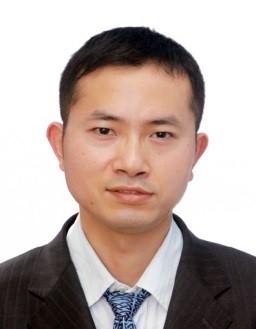LI Wenwei (李文卫)
| Professor Department of Applied Chemistry School of Chemistry and Materials Science University of Science and Technology of China Hefei, Anhui 230026, P. R. China Tel:+86-512-87161369 Fax: +86-512-87161362 E-mail: wwli@ustc.edu.cn Personal Homepage: |
RESEARCH INTERESTS
1) Microbial conversion and valorization of pollutants
2) Novel nanomaterials for water pollution control and resource recovery
EDUCATION EXPERIENCE
2008: Ph.D. (Environmental Science), Chengdu Institute of Biology, Chinese Academy of Sciences, China
2005: M.S. (Environmental Engineering), Hunan University, China.
2002: B.S (Environmental Engineering), Hunan University, China.
PROFESSIONAL EXPERIENCE
2016– Present: Professor, Department of Applied Chemistry, University of Science and Technology of China.
2008– 2015: Associate Professor/ Postdoc, Department of Chemistry, University of Science and Technology of China.
2015-Present: Associate Editor, Chemical Engineering Journal
2019-2020: Guest Editor, Current Opinion in Chemical Biology
2016-Present: Editorial Board Member, Environmental Chemistry (Chinese)
2015-2019: Editorial Board Member, Scientific Reports
2015-Present: Management Committee Member of Specialist Group “Assessment and Control of Hazardous Substances in Water” (ACHSW), International Water Association (IWA)
HONORS AND AWARDS
2015: Chang Jiang Scholars of Ministry of Education of China
2015: Excellent Young Scholar, National Natural Science Foundation of China
2014: ProSPER.Net-Scopus Young Scientist Award (Waste Category, issued by ProSPER.Net and Elsevier Publishing Group).
2016: Young Scientist Award, Chinese Society for Environmental Sciences.
LIST OF SELECTED PUBLICATIONS
I. Papers
(# Joint first author, * Correspondence author)
(1) WW Li, HQ Yu*, BE Rittmann*. Reuse water pollutants. Nature, 2015, 528: 29-31
(2) R Lu#, WW Li#, B Mizaikoff*, A Katzir, Y Raichlin, GP Sheng, HQ Yu*. High-sensitivity infrared attenuated total reflectance sensors for in-situ multi-component detection of volatile organic compounds. Nature Protocols, 2016, 11(2): 377-386.
(3) SJ Yuan#, WW Li#, YY Cheng, H He, JJ Chen, ZH Tong, ZQ Lin, F Zhang, GP Sheng*, HQ Yu*. A plate-based electrochromic approach for the high-throughput detection of electrochemically active bacteria. Nature Protocols. 2014, 9(1): 112-119
(4) LJ Tian, WW Li*, TT Zhu, JJ Chen, WK Wang, PF An, L Zhang, JC Dong, Y Guan, DF Liu, NQ Zhou, G Liu, YC Tian, HQ Yu*. Directed bio-fabrication of nanoparticles through regulating extracellular electron transfer. The Journal of American Chemical Society, 2017, 139: 12149-12152
(5) XW Liu, WW Li*, HQ Yu. Cathodic catalysts in bioelectrochemical systems for energy recovery from wastewater. Chemical Society Reviews, 2014, 43: 7718-7745.
(6) WW Li, HQ Yu*, Z He*. Towards sustainable wastewater treatment technologies by using microbial fuel cells–centred technologies. Energy & Environmental Science, 2014, 7 (3): 911-924.
(7) J Wu, ZH Cheng, D Min, L Cheng, RL He, DF Liu*, WW Li*. CRISPRi System as an Efficient, Simple Platform for Rapid Identification of Genes Involved in Pollutant Transformation by Aeromonas hydrophila. Environmental Science Technology, 2020, 54, 6: 3306-3315
(8) LL Li, YH Cui, LY Lu, YL Liu, CJ Zhu, LJ Tian, WW Li*, X Zhang, H Cheng, JY Ma, J Chu, ZH Tong, HQ Yu*. Selenium stimulates cadmium detoxification in Caenorhabditis elegans through thiols-mediated nanoparticles formation and secretion. Environmental Science Technology 2019, 53 (5): 2344–2352
(9) WW Li, HQ Yu*. Utilization of microbe-derived electricity for practical application. Environmental Science & Technology, 2014, 48 (1): 17-18.
(10) FF Yan, YR He, C Wu, YY Cheng*, WW Li*, HQ Yu. Carbon nanotubes alter the electron flow route and enhance nitrobenzene reduction by Shewanella oneidensis MR‑1. Environmental Science & Technology Letters, 2014, 1 (1): 128–132.
(11) LJ Tian, Y Min, WW Li*, JJ Chen*, NQ Zhou, TT Zhu, DB Li, JY Ma, PF An, LR Zheng, H Huang, YZ Liu, HQ Yu. Substrate metabolism-driven assembly of high-quality CdSxSe1–x quantum dots in Escherichia coli: molecular mechanisms and bioimaging application. ACS Nano 2019, 13: 5841−5851
(12) LJ Tian, WW Li*, TT Zhu, GH Zhao, XW Liu, JC Dong, PF An, JY Ma, F Shen, C Qian, B Hu, HQ Yu. Acid-stimulated bioassembly of high-performance quantum dots in Escherichia coli. Journal of Materials Chemistry A 2019, 7: 18480-18487
II. Book Chapters
(1) M Gao, JY Lu, WW Li*. Oxygen reduction reaction electrocatalysts for microbial fuel cells. In: Novel Catalyst Materials for Bioelectrochemical Systems: Fundamentals and Applications. ACS Symposium Series; ACS Publications, 2020.
(2) WW Li, HQ Yu. Microbial electrochemical production of energy and value-added chemicals from agri-food wastewater. In: Food Industry Wastes- Assessment and Recuperation of Commodities (2e) Academic Press (Elsevier) 2020
(3) R Sekar, B Ramalingam, Y Deng, QL Feng, WW Li. Removal of Pharmaceuticals from Wastewater by Membrane and Biofilm Reactors. In: Microbial Biofilms in Bioremediation and Wastewater Treatment. CRC Press, 2020
(4) WW Li, GP Sheng, HQ Yu. Electricity generation from food industry wastewater using the MFC technology. In: Food Industry Wastes: Assessment and Recuperation of Commodities. Academic Press; London; 2012.
(5) WW Li, GP Sheng. Microbial fuel cells in power generation and extended applications. In: Bai FW, Liu CG, Huang H, Tsao GT, editors. Biotechnology in China III: Biofuels and Bioenergy: Springer Berlin; 2012.
(6) WW Li, HQ Yu. Biohydrogen production with high-rate bioreactors. In: Biofuels: Alternative Feedstocks and Conversion Processes. Academic Press, London; 2011
Back

